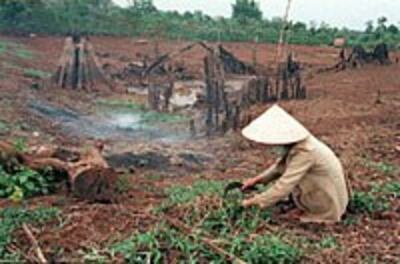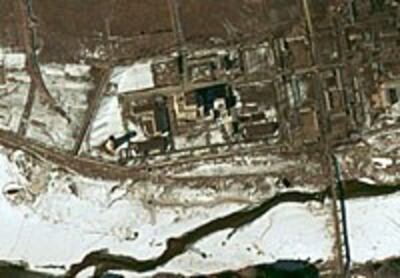
HONG KONG—Asia-Pacific countries are facing huge environmental challenges caused by rapid urbanization, fast economic growth, and inadequate infrastructure, World Bank experts said in two recent reports released ahead of Earth Day 2005.
Hear 'Ganesha Triumphant', a musical improvisation by Thai elephants
"East Asia’s economy is growing more quickly than any other region, but improvements in human welfare are being offset by serious environmental issues," Jemal-ud-din Kassum, World Bank vice president for East Asia and the Pacific, said in a statement.
Rapid urbanization causes problems
Migration to urban areas in many countries is outpacing the ability of cities to provide clean-water and sanitation infrastructure, according to the Bank's East Asia and Pacific Environment Strategy.
"The 'grow now, clean up later' model for economic development that much of the region has adopted sounds reasonable, but people don't realize that the costs of delaying environmental protection are much greater in the long run," Maria Teresa Serra, director of the Bank's Environment and Social Development Sector in the East Asia and Pacific region, said in the statement carried on the Bank's Web site.
According to the second report, the Bank's Little Green Data Book 2005, a quarter of the region's population lacks access to clean drinking water and more than half lack access to basic sanitation.

Chinese officials have recently warned of an impending water crisis in major cities, to add to the power outages frequently endured by city-dwellers.
Experts told RFA's Mandarin service that while China is the sixth-largest consumer of water in the world, per capita consumption is very low, suggesting that large amounts of water are spoiled or wasted.
Too little investment in recycling
"There is very little investment in the recycling and treatment of water in China, and that could be increased," Que Shikui, an expert at Florida University, told RFA.
He Ping, of the New York-based China Environmental Protection Foundation, said water shortages in 60 percent of cities in southern China were mostly the result of environmental pollution. A total of 108 Chinese cities already face severe water shortages.

China's water resources planning needs to be coordinated with sewage treatment strategies in individual cities, He said.
"The percentage of waste water that gets recycled in the cities with the most serious water shortages is very low at the moment. This is going to be a major environmental problem for China," he told RFA.
Water-borne diseases now cause half a million infant deaths annually in the region, while air pollution causes thousands of premature deaths—50,000 people die prematurely each year in China as a result of pollution just from coal burning, the World Bank said.
It said the trends were a growing concern as more people move to the region’s already crowded cities.

More than 39 percent of the region’s 1.8 billion people now live in cities, with more than half the region's population living in cities by 2015, the Bank estimates.
The Environment Strategy calls for the Bank to proactively support environmental policies and seek effective engagement with development partners at the local and regional levels.
When the Bank approved funding recently for the Nam Theun 2 dam in Laos, the decision was roundly criticized by environmental groups.
They said research into the social and environmental impacts of the project had been insufficient.
"The Bank is looking to strengthen environment policies and capacities in the region, and we want to encourage collaboration between agencies at all levels to address local and transboundary environmental issues," Magda Lovei, environment manager for the East Asia and Pacific region, said.
Original reporting in Mandarin by Gao Shan. RFA Mandarin service director: Jennifer Chou. Produced for the Web in English by Luisetta Mudie and Sarah Jackson-Han.
